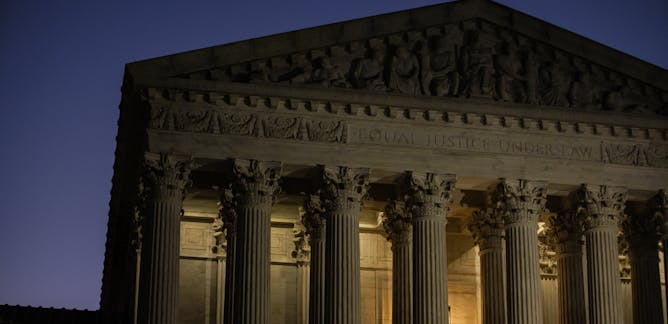|
|
|
|
Nau mai, haere mai.
Despite a struggling economy and multiple sectors retracting over the past quarters, the government is pushing ahead with changes to Jobseeker rules that will have a major impact on unemployed young people and their families.
More than 4,000 18- and 19-year-olds are expected to become ineligible for Jobseeker support under the proposal to means test their parents, who will then become responsible for their adult children’s welfare.
As Susan St John writes today, this will put already stretched families under even more pressure, and add to the complex calculations lower-income households already have to make to navigate the intricacies of our tax and income support systems.
At the same time, the overall unemployment rate of 5.2% disguises a much higher youth rate, as well as the underemployment of those who have some work but want more.
“In this difficult recession,” she writes, “the last thing we should do is to treat our young adults like dependent children.”
|

|
Finlay Macdonald
New Zealand Editor
|
|

Susan St John, University of Auckland, Waipapa Taumata Rau
The Jobseeker changes assume there are enough jobs for young New Zealanders looking for work – when one in eight are already not in a job, training or education.
|

Sheila Skeaff, University of Otago
Most New Zealand adults consume more protein than the recommended amount. They could reduce meat without risking inadequate protein intake.
|

Jeffrey McNeill, Te Kunenga ki Pūrehuroa – Massey University
When voters know more about candidates and their policies, and when the issues are more relevant, local democracy thrives.
|

Dennis Wesselbaum, University of Otago
New Zealand has been in a ‘stagflationary spiral’ for years. Pulling out of that takes time, but signs of recovery are real.
|

Richard Shaw, Te Kunenga ki Pūrehuroa – Massey University; Chris Eichbaum, Te Herenga Waka — Victoria University of Wellington
Cabinet papers are usually prepared by ministries with input from impartial public servants. The process over Palestine raises wider questions about transparency.
|

Michele Governale, Te Herenga Waka — Victoria University of Wellington; Ulrich Zuelicke, Te Herenga Waka — Victoria University of Wellington
Science fiction sometimes uses quantum concepts to make the impossible seem plausible. But real-world developments will likely have profound societal implications.
|

Amanda Kvalsvig, University of Otago; Anna-Maria Arabia
Unchecked airborne infections cost billions in lost health and productivity each year – likely more than the cost of better ventilation to clean up indoor air.
|

Alexander Gillespie, University of Waikato
Donald Trump’s ambitious Gaza peace plan gives New Zealand another chance to reconsider when is the right time to recognise a Palestinian state.
|
From our foreign editions
|

Eyal Mayroz, University of Sydney
History has shown that pathways to peace can be found in even the most intractable conflicts when courage meets opportunity.
| |

Morgan Marietta, University of Tennessee
With partisan advantage, clashing perceptions of reality and revolutionary readings of the Constitution all in play, the Supreme Court’s cases this year reach far into American politics and culture.
|

Kevin John Brophy, The University of Melbourne
A missing poem is at the centre of What We Can Know, a sprawling, surprising novel set in a time of climate catastrophe.
| |

Rick Sarre, University of South Australia; Ben Livings, University of South Australia
Both the prosecutors and Patterson herself are continuing legal action, but for very different reasons. They could extend the case, or come to nothing at all.
|

Jessie Osborne, RAND Europe
The mission should launch on a flyby of the Moon in February 2026.
| |

Satrio Hani Samudra, UCL; Tries Blandine Razak, IPB University
Blast-fished reefs are unlikely to recover naturally without human intervention.
|

Tracy Hussell, University of Manchester
The discovery of cells that prevent the immune system from hurting the body is paving the way for new treatments for autoimmune diseases and cancer.
| |

David Lees, University of Warwick
Sébastien Lecornu was the fourth prime minister to go since the summer of 2024. His departure adds yet more pressure on president Emmanuel Macron.
|

Laszlo Sarkany, Western University
Despite Canada’s historic support for the International Criminal Court, Mark Carney’s government has yet to defend it against attacks by the U.S. Why?
| |

Saheed Babajide Owonikoko, Modibbo Adama University of Technology
The governments and militaries of the Lake Chad region should prioritise JAS as much as ISWAP in their counter-terrorism efforts.
|
|
|
| |
|
|
|
The Conversation AU/NZ
Melbourne Victoria, Australia
•
Full Time
|

|
|
|
|
|
|
9 October 2025
•
Auckland
|

|
13 - 16 October 2025
•
Christchurch
|

|
21 October 2025
•
Wellington
|

|
10 - 13 November 2025
•
Wellington
|

|
|
|
|
| |
| |
| |
| |
| |
|
|
|
|
|
|
|